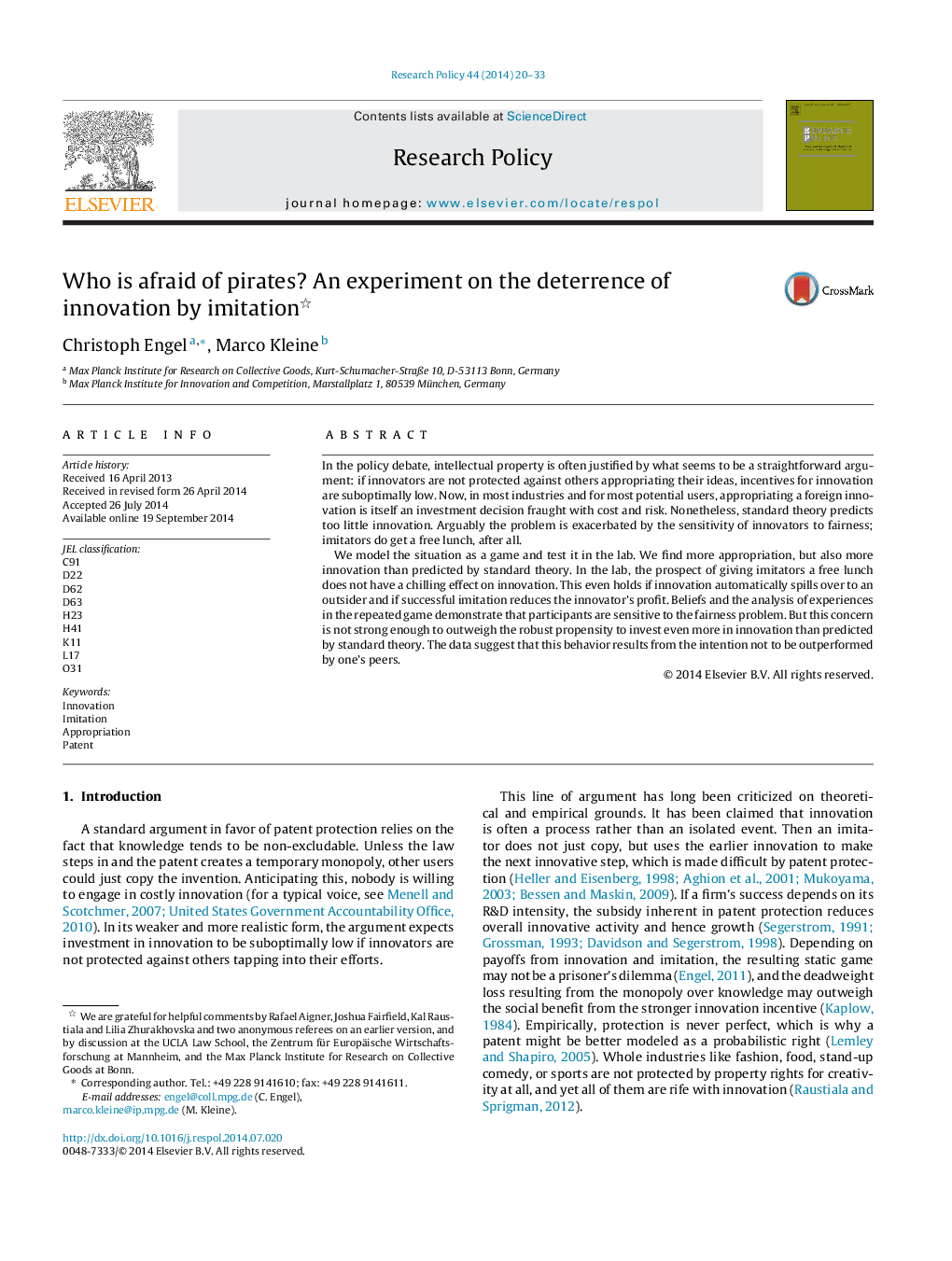| Article ID | Journal | Published Year | Pages | File Type |
|---|---|---|---|---|
| 10483000 | Research Policy | 2015 | 14 Pages |
Abstract
We model the situation as a game and test it in the lab. We find more appropriation, but also more innovation than predicted by standard theory. In the lab, the prospect of giving imitators a free lunch does not have a chilling effect on innovation. This even holds if innovation automatically spills over to an outsider and if successful imitation reduces the innovator's profit. Beliefs and the analysis of experiences in the repeated game demonstrate that participants are sensitive to the fairness problem. But this concern is not strong enough to outweigh the robust propensity to invest even more in innovation than predicted by standard theory. The data suggest that this behavior results from the intention not to be outperformed by one's peers.
Related Topics
Social Sciences and Humanities
Business, Management and Accounting
Business and International Management
Authors
Christoph Engel, Marco Kleine,
